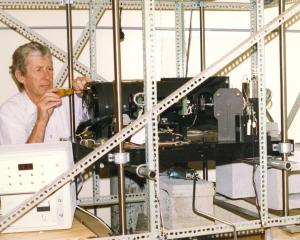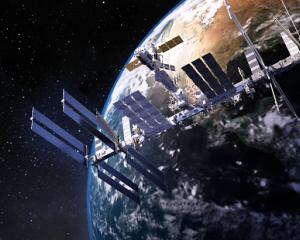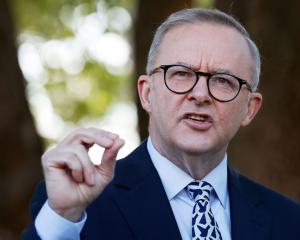After spending more than five weeks in hospital for a bout of double pneumonia, doctors told Pope Francis he needed two months' rest - but the leader of the world's 1.4 billion Catholics kept working right to the end.
On Easter Sunday, the day before his death aged 88, Francis made his first prolonged public appearance since February, entering St Peter's Square in a white popemobile to greet cheering crowds.
And for only the second time since leaving hospital on March 23, the Pope also met on Sunday with foreign leaders, welcoming United States Vice President JD Vance to his residence for a brief encounter.
"I was happy to see him yesterday, though he was obviously very ill," Vance wrote on X. "May God rest his soul."
Croatian Prime Minister Andrej Plenkovic and his family also had a brief meeting with Francis on Sunday.
"It was a brief moment, but profoundly touching, a meeting of kindness, smiles, and blessing," Plenkovic said in a statement on Monday.

Cardinal Michael Czerny, a senior Vatican official who was close to Francis, said he did not think Francis pushed himself irresponsibly, and needed to move about.
"Absolute rest isn't healing," Czerny said. "He balanced convalescence with his being the Bishop of Rome."
Czerny said the pontiff was devoted to his work leading the world's Catholics.
Citing an instruction Francis often gave Catholic bishops to make sure they were close to their flocks, Czerny said: "He died with the smell of the sheep on him."
Austen Ivereigh, a biographer of Francis who also wrote a book with the Pope in 2020, said the pontiff "listened carefully to his doctors' advice but his first priority was his mission of presence."
Francis, said Ivereigh, was "a master of timing."
"He made sure we had a Pope for Easter and kept up his mission of presence to the last," said the biographer.
During his time in hospital, Francis had suffered severe breathing crises, which his doctors later said had nearly killed him. The Vatican said on Monday evening that the Pope had died of a stroke and subsequent, irreversible cardiovascular arrest.
"Dear brothers and sisters, it is with profound sadness I must announce the death of our Holy Father Francis," Cardinal Kevin Farrell announced on the Vatican's TV channel on Monday (local time). "At 7.35am this morning the Bishop of Rome, Francis, returned to the house of the Father."
Francis died of a stroke and irreversible cardiovascular arrest, Vatican doctor Andrea Arcangeli said in the death certificate, which was released by the Vatican. It added that the pontiff had fallen into a coma before he died.
Besides his recent lung infection, Arcangeli said Francis had also suffered from high blood pressure and diabetes.
A final few words
Since returning from hospital, Francis had 24-hour care from a nurse, the Vatican said previously. He was receiving oxygen via a small hose under his nose overnight, and during the day as needed.
During his stay in hospital, the Pope also used non-invasive mechanical ventilation, involving the placement of a mask over his face to help push air into his lungs. He was no longer using ventilation after leaving hospital, the Vatican said.
In his last public appearance on Sunday, Francis said only a few words, wishing a happy Easter in a raspy voice to about 35,000 people gathered in St Peter's Square.
In a traditional Easter message, read by an aide, Francis reiterated his frequent call for a ceasefire in Gaza, calling the humanitarian situation in the enclave "deplorable".
The Pope also called on Palestinian militant group Hamas to release its remaining hostages and condemned what he said was a "worrisome" trend of antisemitism in the world.
Father Gabriel Romanelli, from the Gaza parish the Pope called regularly during the Israel-Hamas war, told Vatican News: "The Pope called us for the last time on Saturday evening, shortly before the Easter Vigil began, while we were praying the Rosary. He told us that he was praying for us, he blessed us, and he thanked us for our prayers in his favour."
As he toured the square in his popemobile on Sunday, people lined the aisles to get close to him, many holding aloft national flags and shouting "viva il papa!" (long live the pope!). Some offered babies for him to bless.
Italy's Family Affairs Minister Eugenia Roccella said Francis had given his all, to the end.
The Pope, she said in a statement, "chose not to spare himself, transmitting in his suffering, physical closeness, a message about his whole papacy."
Cardinals to meet
Cardinals were due to meet on Tuesday to plan the Pope funeral, which leaders from around the world will attend ahead of a conclave next month to elect a new head of the Roman Catholic Church.
His sudden death set in motion ancient rituals, as the 1.4-billion-member Church started the transition from one pontiff to another, including the breaking of the Pope's "Fisherman's Ring" and lead seal so they cannot be used by anyone else.
All cardinals in Rome have been invited to gather in the Vatican at 9am (local time) where they were expected to make funeral plans.
The Vatican has said it expects the ceremony to take place sometime between Friday and Sunday. In a break from tradition, Francis confirmed in his final testament released on Monday that he wished to be buried in Rome's Basilica of Saint Mary Major and not St Peter's Basilica.
A Vatican spokesman said the coffin might be moved to St Peter's as early as Wednesday morning to allow the faithful to pay their respects.
Before that staff and officials within the Holy See could immediately start to pay their respects before the Pope's body at the Santa Marta residence, where Francis set up home in 2013, shunning the grand, apostolic palace his predecessors had lived in.
Francis appointed nearly 80% of the cardinal electors who will choose the next pope, increasing the possibility that his successor will continue his progressive policies, despite the strong pushback from traditionalists.
A conclave to elect the new pope normally takes place between 15 and 20 days after the death of a pontiff. Some 135 cardinals are eligible to take part in the highly secretive ballot which can stretch over days.
At present there is no clear frontrunner to succeed Francis.












